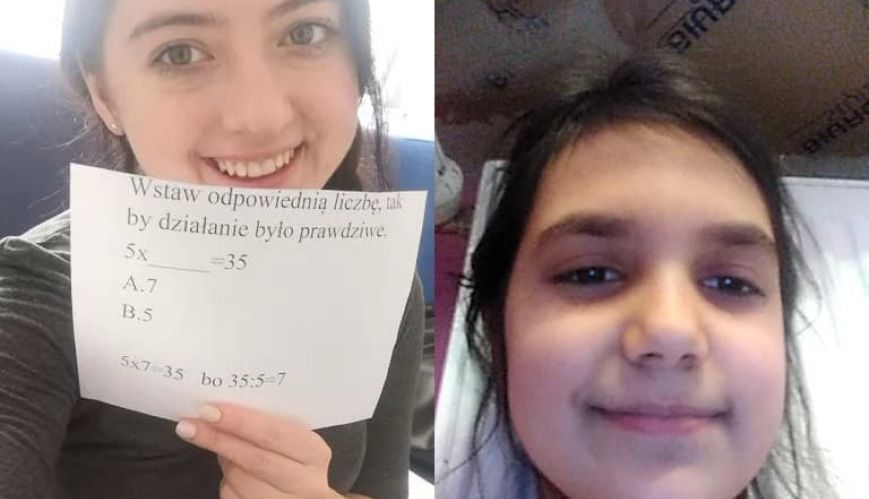Creative solutions to global education during COVID-19

Creative solutions to global education during COVID-19
The Salvation Army around the world is assisting its students during the pandemic, including in Poland, as pictured above.
Schools run by The Salvation Army across the world have been adapting to COVID-19 restrictions to ensure many of the 400,000-plus students continue to receive an education.
The Salvation Army operates more than 4000 schools all over the globe, employing more than 20,000 teachers and support staff. In many places, it offers the only form of public education to the communities that it serves. There is also a focus on children with special needs and ensuring that girls have access to education.
Howard Dalziel, The Salvation Army Schools Director at International Headquarters, says: “The COVID-19 lockdown has presented an enormous challenge across the world as children with a huge variety of learning, social, physical and psychological needs have all been sent home. Many families are facing unprecedented economic hardship and those in rural, remote or urban deprived communities are often the first to lose any income and have the least access to technology.
“We are looking to stay in touch with as many children as possible ... as we gradually leave lockdown we will continue to seek to ensure that children from poorer communities can have access to simple technology that will enable them to learn – whether at school or within the home.”
Global lessons
Salvation Army teachers in Guatemala have been contacting their students via social media in order to provide learning resources and set work to be completed. For those without internet access, lessons have been delivered by post.
In India, The Salvation Army’s special school for deaf students in Darjeeling has been using Zoom to deliver online teaching incorporating sign language. Training has also been undertaken to utilise the platform to prepare for post-lockdown scenarios; for instance, helping parents in remote areas learn how to communicate using sign language.
Technology has also been deployed to maintain learning opportunities in Sulawesi, Indonesia. Here, again, Zoom has been used to good effect in order to provide real-time teaching for students with internet access, as well as to coordinate the staff team and teacher-training program.
Meanwhile, in the Caribbean nation of Jamaica, Salvation Army-run children’s homes have adapted by providing their residents with online teaching tools, enhancing the materials provided by local schools.
In Liberia, West Africa, Salvation Army teachers are sending out work to students, either via the post or by delivering personally to pupils’ homes. Distances can be significant, with some children living a 5km walk away from their school. The schools are still administering tests to check students’ progress and the marks are being collected.
The Salvation Army in Warsaw, Poland, where schools have already been closed for two months, has stepped in to provide online classes. The after-school team from an existing Army program is also coaching young people in English language lessons to help them prepare for their national exams in June. As well as making academic provision, Praga Północ Corps is offering extra-curricular activities in craft, music and sport, and has encouraged the children in the program to send thank-you notes and pictures to local hospitals and police stations.
The Salvation Army-run Inpyung Technical High School in South Korea, like other schools in the country, is using television, radio and social media to help its students maintain the momentum of learning. While the practical aspects of the syllabus have had to be temporarily suspended, core subjects continue. Online content is continually being created, and plans are being developed for classes to operate more normally later in the year.